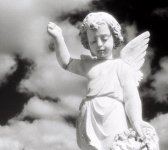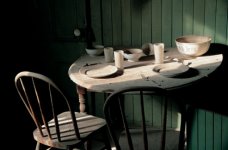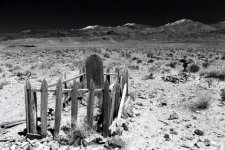Rafael
Mandlerian
OK folks, let's get this discussion off the ground. The book we are discussing is Art and Fear by David Bayles and Ted Orland. I want to begin by thanking Gregg for proposing this book. I had not read this book before. And, without the impetus provided by the book club, I likely wouldn't have picked it up. So I am grateful to all of you for giving me the push to read Art and Fear.
I have three initial comments to make about the book. Firstly, I was interested to read it, at least in significant part, because I have never really thought of myself as an artist. In my own mind, I have tended to distinguish artists who work with photographic media from photographers. I have never thought of this as a value-laden distinction. I simply think of myself as a photographer but not really as an artist. So I was interested to read the first part of Art and Fear and to discover the extent to which the problems discussed by the authors do apply to my own photography.
As an aside, I was also struck by the ways that this book indirectly challenges another dichotomy: namely the famous "gear-head vs. photographer" distinction that is bandied about so often on RFF. Bayles and Orland seem to suggest that careful attention to the ways that different types of equipment can be used to communicate the artist's vision is an integral aspect of being an artist. Hmm, food for thought...
Secondly, I was struck by the optimism of the authors. I'm still not sure how fully I share this optimism. But I must confess to finding no small comfort in their optimistic appraisal of the average individual's capacity to develop into an artist.
Thirdly, I want to highlight a passage that really grabbed me when I read it. On pp.91-92, the authors argue, "for the working artist, the very best writings on art are not analytical or chronological; they are autobiographical." Quite apart from the fact that this assertion sits well with my own love of autobiographies, I found the emphasis on process over product that runs throughout this book to be very thought-provoking.
OK, let's hear from others. What are your initial thoughts on this book?
NOTE: Mods, would one of you please "un-stickify" the Book Club #1 thread and "stickify" this one? Thanks very much.
I have three initial comments to make about the book. Firstly, I was interested to read it, at least in significant part, because I have never really thought of myself as an artist. In my own mind, I have tended to distinguish artists who work with photographic media from photographers. I have never thought of this as a value-laden distinction. I simply think of myself as a photographer but not really as an artist. So I was interested to read the first part of Art and Fear and to discover the extent to which the problems discussed by the authors do apply to my own photography.
As an aside, I was also struck by the ways that this book indirectly challenges another dichotomy: namely the famous "gear-head vs. photographer" distinction that is bandied about so often on RFF. Bayles and Orland seem to suggest that careful attention to the ways that different types of equipment can be used to communicate the artist's vision is an integral aspect of being an artist. Hmm, food for thought...
Secondly, I was struck by the optimism of the authors. I'm still not sure how fully I share this optimism. But I must confess to finding no small comfort in their optimistic appraisal of the average individual's capacity to develop into an artist.
Thirdly, I want to highlight a passage that really grabbed me when I read it. On pp.91-92, the authors argue, "for the working artist, the very best writings on art are not analytical or chronological; they are autobiographical." Quite apart from the fact that this assertion sits well with my own love of autobiographies, I found the emphasis on process over product that runs throughout this book to be very thought-provoking.
OK, let's hear from others. What are your initial thoughts on this book?
NOTE: Mods, would one of you please "un-stickify" the Book Club #1 thread and "stickify" this one? Thanks very much.



